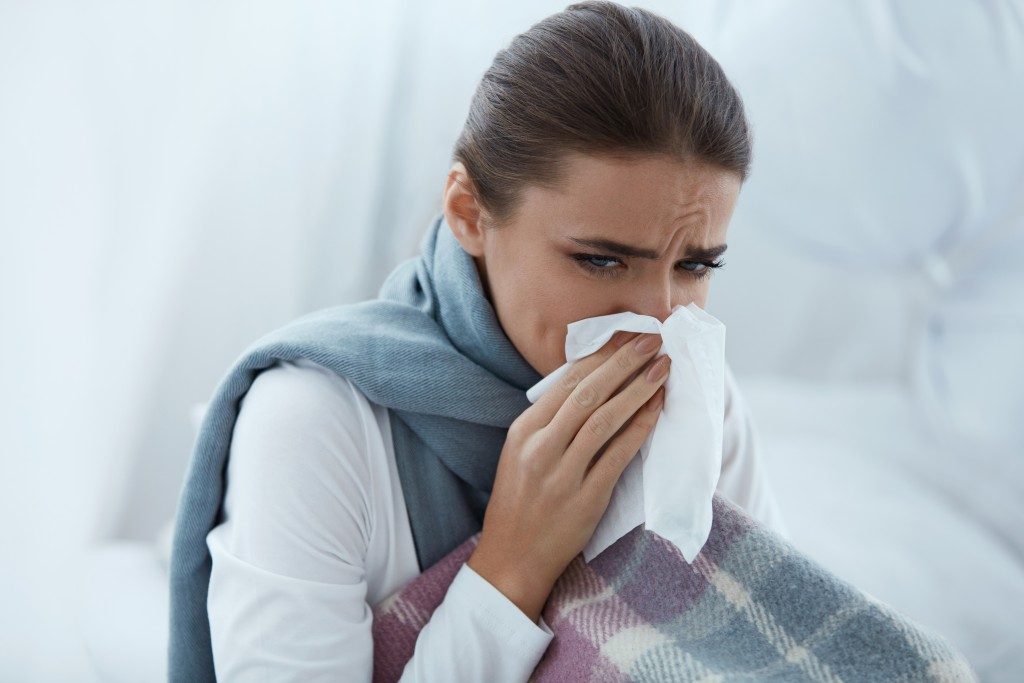To say that allergies are a hassle is an understatement. Allergies don’t only cause constant coughing, sneezing, wheezing, and watery eyes. But they also make you feel restless. In some cases, allergic reactions may even lead to asthma attacks.
Allergies affect a person’s quality of life. In America, about one in five people have allergies, according to the American College of Allergy, Asthma & Immunology. At some point, these 50 million people may have to take a leave from work or school, missing opportunities to learn or earn.
However, if the allergens have already attacked, you don’t always have to rely on medicines. There are scientifically-proven alternatives to prescription meds, which are more organic and less expensive. Just make sure that you consult with your doctor about this.
Acupuncture
It may be thousands of years old, but this traditional Chinese medical technique still works like a charm. According to a Seattle-based acupuncture clinic specializing in allergy treatment, “Allergies occur as a result of an imbalanced immune system, and acupuncture can restore that balance and alleviate symptoms.”
Even the Mayo Clinic states that some clinical practices recommend acupuncture as an alternative treatment for allergic rhinitis.
Butterbur
No, it isn’t the famous drink from the Harry Potter world. It’s a shrub that originated in Europe, Asia, and some parts of North America. Over the years, the plant’s extract has been used to treat a cough, asthma, migraine, and allergies. There’s evidence that butterbur leaf extract alleviates nasal discomfort among people with hay fever. When using butterbur, however, apart from consulting your doctor, the product should be free from pyrrolizidine alkaloids (PA-free).
Apple Cider Vinegar
Apple cider vinegar is more than just a condiment; it’s a rock star. You can use it as a salad dressing, a chemical-free solution to house cleaning, and most importantly, it has many health benefits.
Apple cider vinegar can also be the answer to your allergy problems as it can help cleanse your lymphatic system. You can either consume one tablespoon of the vinegar or make it more palatable by mixing the same amount to a cup of hot water and some honey.
On another note, if you don’t want to worry about prescription medicines or alternative treatments, you have to make efforts to reduce your exposure to allergens. It may sound overused, but prevention really is better than cure. Here are ways to allergy-proof your home:
- Close the windows: They say the best offense is a good defense, and what better way to keep allergies at bay than keeping allergens out? This isn’t to say keep your windows closed at all times, but minimize the breeze that enters your home by controlling entry points. Wind may carry pollen and dust.
- Use dehumidifiers: These units can prevent mold development by controlling the humidity level at home. Dehumidifiers are especially important in areas were mold and mildew are likely to grow, such as a basement, laundry room, and crawl spaces.
- Deep-clean your house regularly: Allergens, allergens everywhere. But if you’re anything like Monica Geller from F.R.I.E.N.D.S., it’s natural for you to want to address house dust, cockroaches, pollen, and pet dander. You should vacuum and sweep every corner of the house, but wear masks and gloves while doing so. If your allergy is severe, have someone else do the task.
Allergies are troublemakers. They make you feel sick, spend on medicine and treatments, and force you to be less productive. But meds aren’t the only solution to this problem: natural treatments and prevention work, too. They may take a little more effort but can help you just the same.

